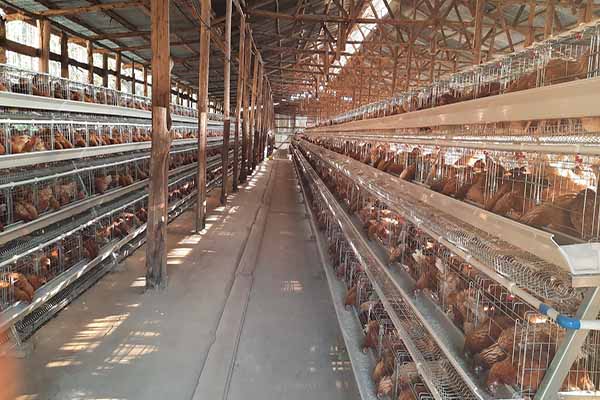How to Reduce Mortality in Tanzania Chicken Farms: A Guide for Livi Mechanical Equipment Manufacturers
Time : 2025-07-25
As a leading poultry equipment manufacturer from China, Livi Mechanical Equipment understands the challenges faced by chicken farmers in Tanzania. One of the most critical issues in poultry farming is mortality, which can significantly impact the profitability of a farm. In this article, we will explore effective strategies to reduce mortality in Tanzania chicken farms, utilizing our expertise in poultry equipment.
Understanding the Causes of Mortality
Before delving into solutions, it’s essential to understand the common causes of mortality in chicken farms. These include:
1. Disease: Avian influenza, Newcastle disease, and other viral infections are common culprits.
2. Poor Nutrition: Inadequate or unbalanced diets can lead to weakness and increased susceptibility to diseases.
3. Environmental Stress: High temperatures, humidity, and poor ventilation can stress the birds, making them more susceptible to diseases.
4. Management Issues: Poor biosecurity practices, overcrowding, and inadequate vaccination schedules can all contribute to higher mortality rates.
Strategies to Reduce Mortality
1. Implementing Effective Biosecurity Measures
Biosecurity is crucial in preventing the introduction and spread of diseases. Here are some key biosecurity measures:
– Sanitization: Regularly clean and disinfect all equipment, feeders, and waterers.
– Access Control: Limit access to the farm and ensure that visitors wear protective clothing.
– Isolation: Isolate new birds for a period to prevent the spread of diseases.
– Vaccination: Follow a comprehensive vaccination program to protect against common diseases.
2. Improving Environmental Conditions
Creating a favorable environment for chickens can significantly reduce mortality. Consider the following:
– Temperature Control: Use Livi’s advanced heating and cooling systems to maintain optimal temperatures in the poultry house.
– Ventilation: Ensure adequate ventilation to provide fresh air and reduce humidity.
– Lighting: Implement a proper lighting schedule to mimic natural light cycles, which can improve egg production and overall health.
3. Optimal Nutrition
Proper nutrition is vital for healthy chickens. Here’s how to achieve it:
– Balanced Diet: Provide a balanced diet that meets the nutritional requirements of your chickens.
– Quality Feed: Use high-quality feed that is free from contaminants.
– Regular Feeding: Follow a regular feeding schedule to ensure consistent nutrition.
4. Advanced Poultry Equipment
Investing in high-quality poultry equipment can greatly improve farm efficiency and reduce mortality. Livi offers a range of equipment designed to enhance farm operations:
– Automatic Feeders and Waterers: These systems ensure consistent access to feed and water, reducing the risk of malnutrition.
– Automated Climate Control Systems: These systems maintain optimal environmental conditions, reducing stress on the birds.
– Egg Collection Systems: Efficient egg collection reduces the risk of contamination and disease.
5. Regular Health Monitoring
Regular health monitoring is crucial for early detection and treatment of diseases. Consider the following:
– Disease Surveillance: Regularly test for common diseases and take immediate action if an outbreak is detected.
– Professional Consultation: Work with a veterinarian to develop a comprehensive health management plan.
Conclusion
Reducing mortality in Tanzania chicken farms requires a comprehensive approach that combines effective biosecurity measures, optimal environmental conditions, proper nutrition, advanced poultry equipment, and regular health monitoring. As a trusted poultry equipment manufacturer, Livi Mechanical Equipment is committed to providing solutions that help farmers achieve their goals. By implementing these strategies, you can create a healthier, more productive chicken farm.
Tags












